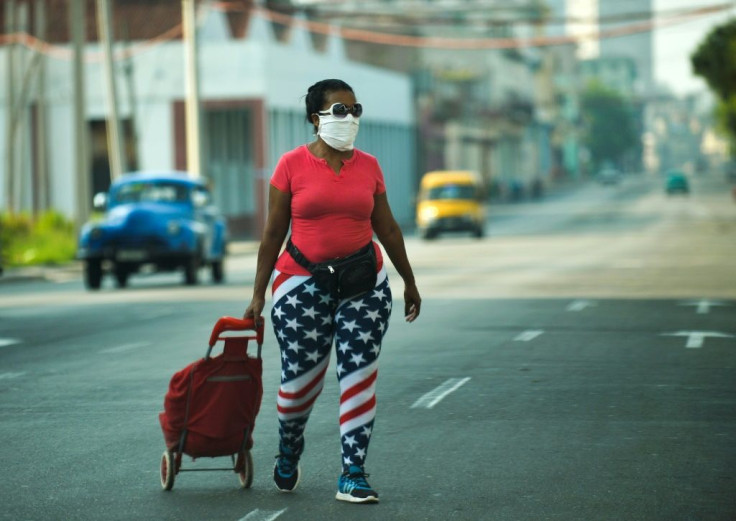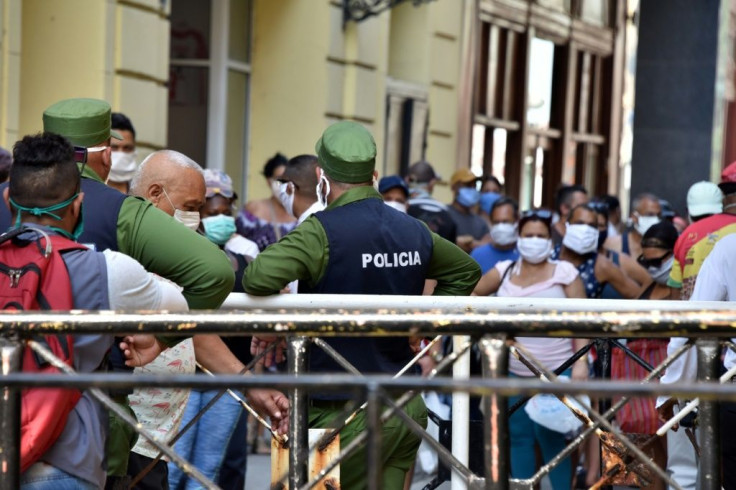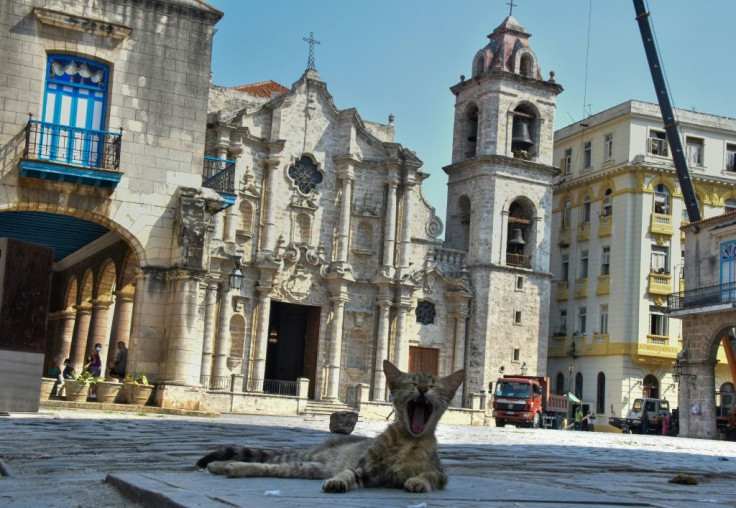Calls To Loosen US Sanctions As Cuba Battles Pandemic
As the deadly coronavirus spreads across Cuba, with 726 cases recorded by Monday, a growing chorus of voices is calling for an easing of the decades-long US embargo.
During the pandemic, the embargo is "even more cruel" and having a more harmful impact than ever, said Nestor Marimon, head of international relations at the ministry of health.
Marimon and others say that while the blockade may not prevent the delivery of medical supplies, it severely complicates the process.
The government said that a recent shipment of masks, testing kits and ventilators that had been offered by Jack Ma, founder of Chinese e-commerce giant Alibaba, could not make it to the Communist-run island because the US shipping company was worried about US sanctions being imposed.

The embargo was imposed in 1962 to "deny resources to the Castro regime," resources which could be "used to control & abuse the rights of the Cuban people and interfere in countries around region," an implicit reference to Venezuela, said Michael Kozak, the Assistant Secretary of State in charge of Latin American affairs.
Since 1992, medicinal supplies have been exempted from the sanctions, as long as they are used exclusively to treat the general population.
The Cuba Democracy Act was adopted when the Cuban economy was in free-fall after the collapse of its main backer, the Soviet Union, and stipulates that the embargo must stay in place until democracy is established in Cuba. The act "permits the export of healthcare products -- medical equipment, medical instruments, medical supplies and pharmaceuticals," said John Kavulich, president of the US-Cuba Trade and Economic Council.
He cited exports worth $1.1 million in 2019, $3.5 million in 2018 and $5.7 million in 2017, and which included penicillin, insulin, dental surgery equipment and ultrasounds, among other medical items.
But things are not quite that straightforward, including the shipment of medicine and medical equipment from countries other than the United States.

Swiss NGO MediCuba, which backs Cuban projects to treat HIV and cancer, knows all about these complications.
A few months back, its bank Postfinance refused to transfer funds to Cuba, citing fears of sanctions that have been reinforced since Donald Trump became US president.
Since May 2019, Title 3 of the Helms-Burton Act threatens sanctions against anyone doing business with entities that were nationalized during the 1959 revolution, a definition sufficiently fluid to worry Cuba's overseas partners.

MediCuba eventually obtained an exemption from its bank. However, the "strengthening of the embargo by the US government has posed (and continues to pose) difficulties for us in the management of the projects that we support," said Luisa Sanchez, a coordinator for the NGO.
The bank of one of their suppliers refused their payments and a new regulation forbids exports to Cuba for any medicine whose components are more than 10 percent of US origin.
MediCuba has launched a crowdfunding campaign to support Cuba's fight against the coronavirus to help it "acquire testing material and personal protective equipment for medical staff."
Jerome Faure, Oxfam's Cuba director confirmed that access to "basic necessity products - hygiene, staff protective equipment, reagents for virus detection - is all made more difficult by the embargo."
That means that "only certain businesses and suppliers are willing to take the risk of working with Cuba for fear of being hit with sanctions," he said.
On an island hit by recurrent shortages of food and medicine, Oxfam and eight other organizations that favor the re-opening of Cuba are calling for a lifting of the embargo.
Michelle Bachelet, the UN commissioner for human rights, is also calling for sanctions to be suspended. And the embargo should not inhibit the delivery of humanitarian aid, said EU foreign policy chief Josep Borrell.
But a State Department spokesman told AFP that the Cuban regime "alone is responsible for ongoing medical supply shortages."
He said the Cuban leadership "has mismanaged Cuba's economy for decades and proven itself incapable of addressing the Cuban people's most basic needs."
That is another way of blaming what Cubans - and even President Miguel Diaz-Canel himself -- refer to as the "internal embargo," an expression denoting Cuba's excessive red tape, weak local production and corruption that hinder any equitable distribution of goods on the island.
"There's no question that Cuba's own economic policies and restrictions are to blame most for Cuba's precarious economic situation and the prospects of a growing humanitarian crisis," said Michael Shifter, president of the Inter-American Dialogue think tank.
"But there is also no question that harsh US sanctions are making things worse in the country," he said. "All this is likely to make it harder for Cuba to confront the coronavirus," he said.
© Copyright AFP 2024. All rights reserved.





















